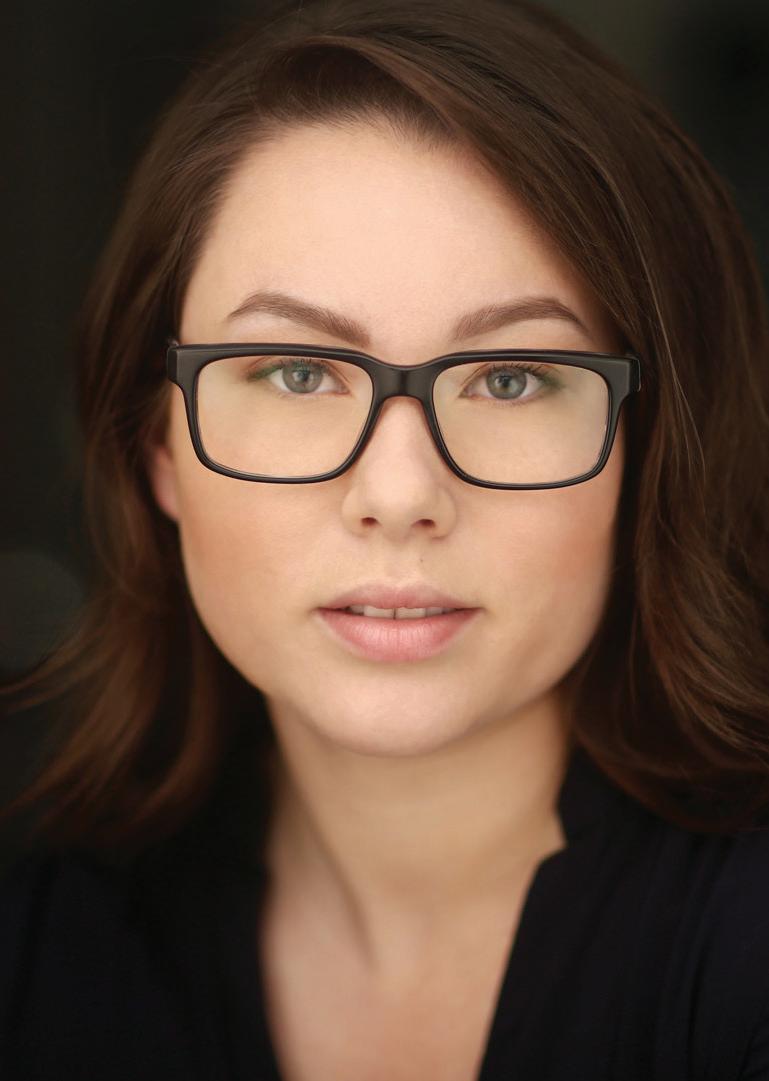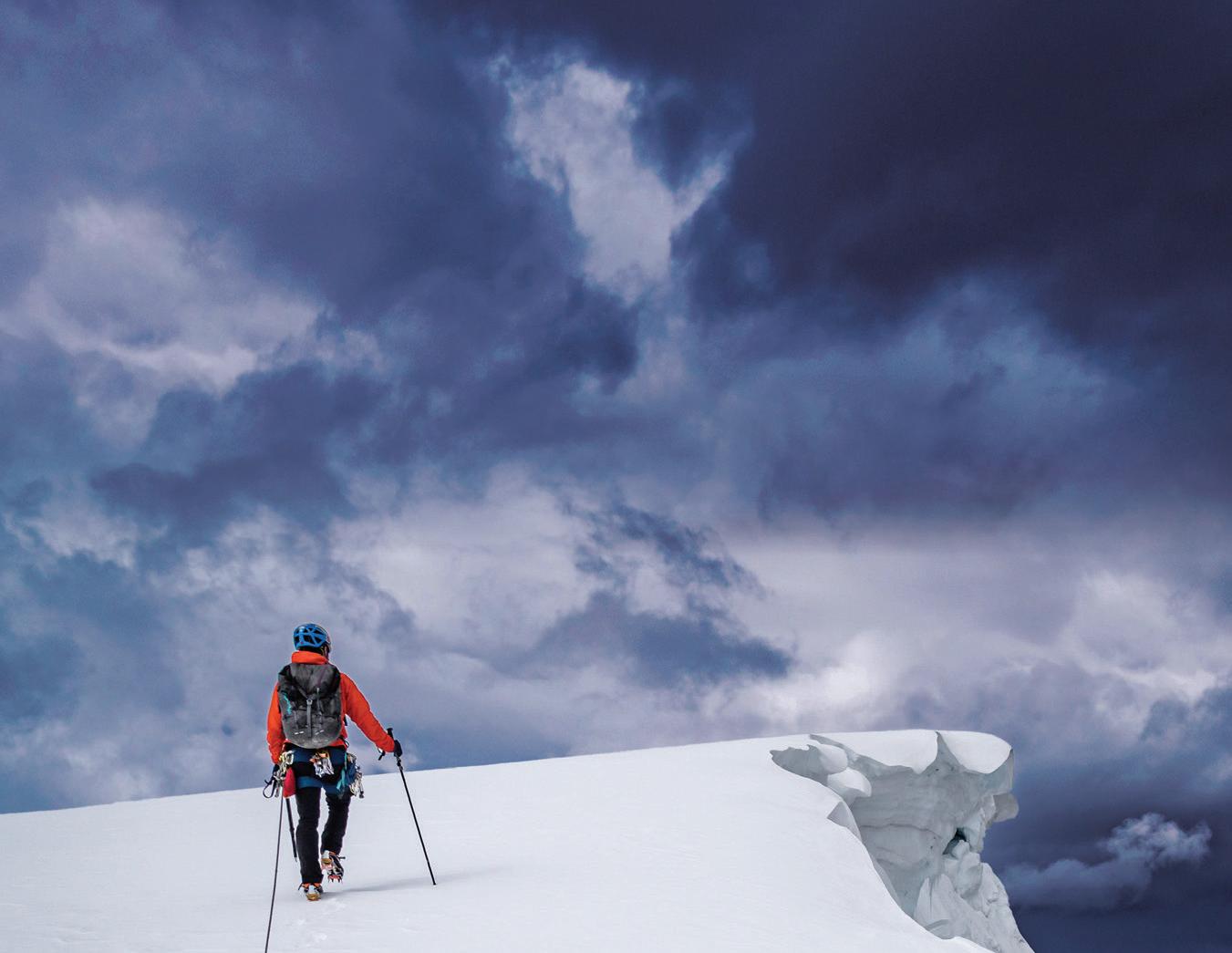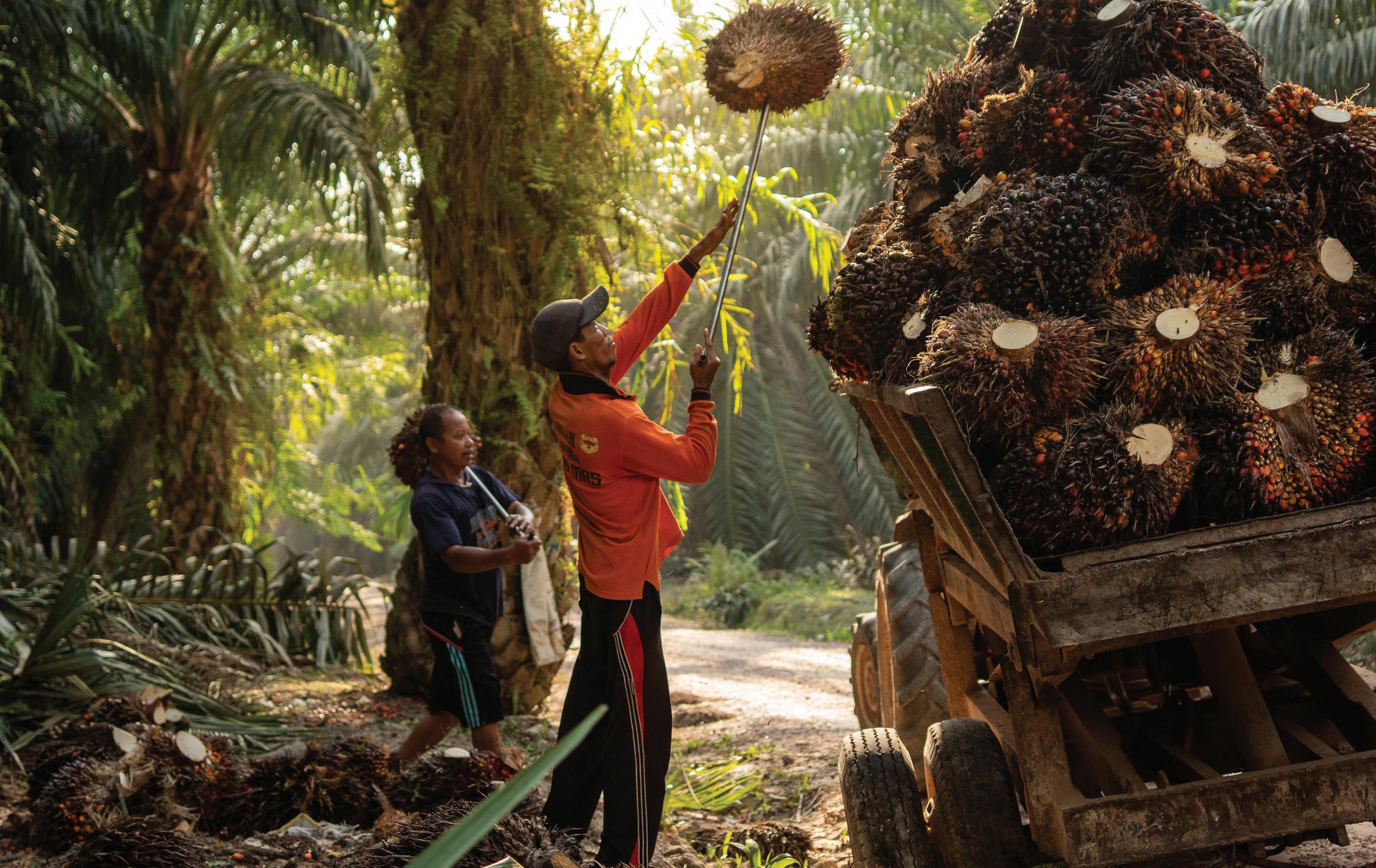
14 minute read
February 18 – 25 / 2021
ARTS Diva’s wide-ranging approach expands her reach
Measha Brueggergosman sang the “Olympic Hymn” and embraced jazz, spiritual, and Joni Mitchell music
Advertisement
by Charlie Smith
Canadian soprano Measha Brueggergosman has no desire to be typecast as only being an opera singer. She certainly ranks among the Canadian greats, having performed in New York City’s Carnegie Hall, Washington’s Kennedy Center, and Wigmore Hall in London. Along the way, she’s worked with several of the top symphony orchestras in the world.
In addition, the Fredericton, New Brunswick, native won several awards for her critically acclaimed Night and Dreams album, which features the music of Wolfgang Amadeus Mozart, Johannes Brahms, Richard Strauss, and other legends from the past.
But last year, in the midst of the pandemic, Brueggergosman decided to release Measha Jazz, a tribute to legendary 20th-century Black vocalists such as Sarah Vaughan and Nina Simone, who were denied opportunities due to racism.
“They would have had a career in classical music if they hadn’t been Black,” Brueggergosman tells the Straight by phone from Fredericton. “Nina Simone graduated from the Juilliard [School] as a pianist and couldn’t get a job until she started singing, to put it bluntly.”
Brueggergosman, on the other hand, gained entry into the classical-music world as a Black singer many years later.
“Now, I’m singing a jazz album as a reverse homage to these women,” she says.
On Thursday (February 18), Brueggergosman will be one of many high-profile musicians appearing in the Vancouver Symphony Orchestra’s Resilient Symphony virtual gala concert. While other music superstars—including k.d. lang, Geddy Lee, violinists Itzhak Perlman and James Ehnes, trumpeters Jens Lindemann and Bria Skonberg, and pianist Stewart Goodyear—will participate remotely, Brueggergosman will sing from the Orpheum stage into people’s homes via their computer connections.
In addition to performing Mozart’s aria “L’amero saro costante” from Il Re Pastore and selections from Gustav Mahler’s Des Knaben Wunderhorn, she plans on showing off her jazz chops.
“So people are going to get a lot of Measha,” she says with a laugh.
So why go with Mahler?
“The short answer is because Mahler is never wrong, and you never have to have an excuse to perform Mahler,” Brueggergosman replies.
As for Mozart, this offers her the chance to collaborate with other musicians, including Nick Wright and Amanda Chan.
“We’re looking for as many ways as possible to employ as many musicians as possible in as many circumstances as possible,” Brueggergosman declares.
Her appearance at the Resilient Symphony virtual gala reflects her deepening ties to the VSO under its president and CEO, Angela Elster, who was hired last year. Last November, Brueggergosman hosted the VSO’s presentation of Americana: Walker, Montgomery & Copland. She’s also an international master teacher in the VSO School of Music.
“If you know what motivates you, you’re going to be such a better singer,” she advises.
Elster and Brueggergosman have been friends for more than 20 years and both share a passion for music education. When Elster was senior vice president of the Royal Conservatory of Music in Toronto, she launched an initiative whereby community artists worked with classroom teachers or subject-specialist teachers. Together, they delivered the core curriculum through music and other art forms.
“This fascinated Measha, so she became a champion of learning through the arts,” Elster tells the Straight by phone. “And, in fact, we went to her elementary school in New Brunswick…and she taught math through singing to fourth graders.”
Elster says that while her friend’s operatic career has reached great heights, she remains eclectic in her commitment to the power of music. “Her spirituals are amazingly moving,” Elster notes.
Soprano Measha Brueggergosman struck up a friendship with Vancouver Symphony Orchestra president/CEO Angela Elster over their shared love of music education. Photo by Lisa MacIntosh.
BRUEGGERGOSMAN ALSO stunned the world when she sang the “Olympic Hymn” at the opening ceremony of the Vancouver Olympics in 2010. “I’ll always associate one of my career highlights with the West Coast,” she says.
Another highlight was singing “Both Sides Now” in a 2008 televised tribute to Joni Mitchell. It was a masterful demonstration of Brueggergosman’s soaring vocals reaching an emotional crescendo in ways that the audience could never have imagined beforehand.
Brueggergosman says she can still recall these events perfectly, saying such moments are rare indeed. But she also keeps things in perspective, saying these memories are not any more special than the births of her children.
She’s also a devout Christian—and she’s eager to discuss how her faith is manifested in her singing.
“My faith makes me brave,” Brueggergosman states with confidence. “My faith makes me fearless. My faith makes me not care what anybody thinks but for my Lord Saviour Jesus Christ.
“That’s what my faith does, because I’m serving Him,” she continues. “Like, that’s why I’m so happy, because I do everything in service to Him. So then why would I be sad or negative or backbiting or jealous, when everything I am doing is what He intends for me to step into. So I have to be bold and I have to be strong and have good courage so that you can be too, because this life is not about us.”
That said, she doesn’t want to be mistaken for somebody who is “effortlessly positive”. It’s been tough for her to learn new things during the pandemic after working so hard to achieve success. Plus, like many others in the arts, opportunities to perform have evaporated along with the spread of COVID-19. That’s to say nothing of the more than two million people who have died from the disease around the world.
“I don’t want anybody to not understand that I am in mourning too,” Brueggergosman emphasizes.
To her friend Elster, she’s “beautiful inside and out” while remaining “such a good human being”.
“Measha is a perfect fit, a beautiful fit, for the VSO because we are the only orchestra in Canada with our own music school,” Elster says. “So that nexus where artistic excellence and educational excellence overlap—that’s where she feels really comfortable and she feels she can contrib ute tremendously. I agree with that.” g -
– Measha Brueggergosman
ARTS Journey from grief inspires new Vancouver ballet
by Charlie Smith
In advance of the world premiere of Coastal City Ballet’s newest production, Whispers of the Soul, choreographer and former dancer Justine Fraser isn’t shy about spreading the credit around.
Because of the pandemic, this ballet is being released on a video—a first for her— as part of this year’s LunarFest celebrations in Vancouver.
Over the phone, Fraser tells the Straight she now understands that even the act of filming a theatrical ballet production is an act of choreography.
She also credits the Coastal City Ballet staff and LunarFest organizers for pulling this off in the midst of a pandemic.
“The dancers were amazing,” Fraser says. “We actually ran the full-length ballet three times to get as many different shots as possible. They worked so hard.”
Whispers of the Soul was inspired by family tragedy. Last May, in the midst of the pandemic, her mother died of cancer, and the ballet represents her personal journey through grief.
“The storyline is really about a young girl who feels lost,” Fraser explains. “She knows that she’s surrounded by people who love her but somehow she doesn’t really feel like she knows who she is.”
This girl, played by Gabriela Mores, falls asleep while reading a book, at which point she’s greeted by butterflies that lead her along a path. She sometimes feels fear, but the butterflies encourage her to continue even though she’s sometimes alone.
“As the girl meets these different imaginative characters, she learns more about herself through learning about and accepting different lands, different cultures, different people,” Fraser says.
To her, this represents how it’s still possible to find joy and connections in the wake of personal hardship.
“It is the most meaningful piece I’ve ever created—the most collaborative piece—which, I think, makes it extra special,” Fraser says.
One of her most important mentors when she was a dancer was Vancouver choreographer Wen Wei Wang, the founder of Wen Wei Dance.
“He had a way of really making me feel seen and collaborated really heavily with the dancers in the room,” she recalls.
Fraser studied under Alonzo King, founder and artistic director of San Francisco–based Alonzo King LINES Ballet. That marked the first time she was able to fuse contemporary and classical ballet, which she has also done in Whispers of the Soul.
Fraser also mentions that she’s a great admirer of Kidd Pivot founder Crystal Pite because of how the Vancouver choreographer embeds strong storylines into her productions.
“This is one of the first experiences I’ve had in having to deliver a storyline through movement,” Fraser states.
She confesses that while choreographing Whispers of the Soul, she thought a great deal about Pite’s storytelling, lauding her as a “genius and a master”.
“I didn’t realize how difficult that can be,” Fraser says. “With COVID, we don’t have the ability to use props or sets.”
Moreover, the dancers weren’t able to have any physical contact, so there’s no partner work. That means dancers had to focus on their own artistry, including their facial expressions, to convey what was unfolding in the story.
During rehearsals, eight-foot squares were placed on the floor and no more than 12 dancers could be in the space at one time, each remaining in their own areas. But with editing, she believes that the film will make it seem like there are large group pieces, even though they weren’t choreographed in unison.
“This experience has been incredibly exciting and moving because I personally witnessed what happens when a group of people really come together to make something happen in a time where it’s difficult,” Fraser says. g


Gabriela Mores (left) dances the lead character in Whispers of the Soul, which choreographer Justine Fraser imagined after the death of her mother.





– choreographer Justine Fraser
Coastal City Ballet’s world premiere of the Whispers of the Soul video will be presented on Monday (February 22) as part of LunarFest.

MOVIES Vancouver director finds his last place on Earth
by Charlie Smith
Vancouver documentary maker Carter Kirilenko says that unlike many other directors, he often doesn’t begin a project with a story in mind. Nor does he start with the characters and then build a story around them.
“This might be a bad thing,” Kirilenko concedes in a phone interview with the Straight. “But I start with the impact I’m trying to create or the problems that I’m trying to solve.
“Then I reverse-engineer that and I look for what stories exist within this field—or this problem—that could evoke empathy and inspire people or highlight a solution to that problem.”
This approach is what led the 23-year-old filmmaker to create “Leuser: The Last Place on Earth”, which will have its world premiere at this year’s virtual Vancouver International Mountain Film Festival. This deeply personal 15-minute documentary is intended to educate the public about how to prevent large-scale deforestation to produce palm oil on the Indonesian island of Sumatra.
Kirilenko reveals in the film that he has consumed palm oil, which is used in countless products, almost every day for his entire life. And “Leuser: The Last Place on Earth” is a follow-up to his earlier short documentary, “In Your Palm”, which outlined the problems associated with this industry.
“There’s so much opportunity to look for solutions to very complex, pertinent environmental issues today through filmmaking,” Kirilenko says. “These can be very powerful tools of inspiration.”
The University of Waterloo environmental-studies grad explains that the Leuser ecosystem is one of the world’s most ancient and life-rich ecosystems, covering 1.7 million intact hectares—and more than 2.6 million in total, according to Global Forest Watch. That makes it more than 6,500 times the size of Stanley Park in Vancouver. It remains home to the last 14,000 Sumatran orangutans, elephants (1,100), tigers (600), and rhinos (80).
In the film, Kirilenko and cinematographer Godfrey Cheng are seen trudging through old-growth forests with Goldman Environmental Award winner Rudi Putra and a team of park rangers to learn how they’re combatting poachers and building community support to protect this natural wonderland.
So was Kirilenko ever scared being in an area with hidden wildlife traps left by hunters, not to mention the presence of tigers and elephants? He lightheartedly replied that the worst fright for him and Chang were the cockroaches and bats near their beds when they were sleeping in the forest.
“Also, there were leeches,” Kirilenko recalled. “Every time you went into the forest, you were guaranteed to come back with at least six leeches attached to you, which was fun.”
The park rangers ensured that he felt safe—in fact, he likened visiting the Leuser Ecosystem to entering their home, because they knew it so well.
“It’s definitely not a place we should be afraid of,” Kirilenko emphasized. “It’s more of a place we should want to explore more of and learn about.”
Even though he didn’t launch the film with any characters in mind, Putra and his team members fill these roles admirably.
“They were just really open to showing their work and showing most of the value of this place because I think they understand this ecosystem, this rainforest, better than anyone,” Kirilenko said. “And they understand that if more people can really get a grasp and develop empathy for it—and understand its value—that increases the chance of it being protected in the long term.”
Kirilenko also interviewed widely heralded Indonesian activist Farwiza Farhan, whose words “blew him away”.
“We will not protect something that we will not love,” Farhan says in the film. “And we could not love something that we don’t know.”
“Leuser: The Last Place on Earth” is one of four environmental films being screened at this year’s virtual Vancouver International Mountain Film Festival. The others are The Return, about salmon spawning in Metro Vancouver (covered last week in the Straight); Maybe Tomorrow, about vanishing sea ice off northwestern Greenland; and Falling Mountains, about disappearing glaciers in the European Alps.
Kirilenko wanted to tell a story that respected local norms on Sumatra while still capturing the narrative and driving engagement with the audience. He hopes to do the same with what he hopes is his next project: a film advocating for the protection of old-growth trees under threat in Mount Elphinstone Provincial Park on British Columbia’s Sunshine Coast.
“There are a couple of things I’ve learned [from the Leuser ecosystem] that I would like to apply here,” Kirilenko said. “One is, I think, approaching the First Nations community and really trying to understand what is the value of this place…through their lens. At the end of the day, it is their land.”
Secondly, he wants to emphasize the value of the Mount Elphinstone Provincial Park forests beyond the price tag on timber sales. That includes cultural and spiritual values, mental-health benefits, their role in carbon sequestration, and the usefulness of medicinal plants.
“I think it really needs to be showcased and really put forward on a wider scale,” Kirilenko said. g


“Leuser: The Last Place on Earth”, directed by Carter Kirilenko (right), shows how conservationists are saving a species-rich ecosystem on Sumatra.
V
IMFF TIP SHEET

Rock climber Harvey Wright is featured in Casey Dubois and Zac Hoffman’s Crux. THE VANCOUVER INTERNATIONAL
Mountain Film Festival will host three live virtual panel discussions this year. c MENTAL HEALTH IN THE
MOUNTAINS (6 p.m. on February 19) WIRTH Hats founder Ben Miller will moderate a discussion over Zoom with rock climber and spiritual seeker Harvey Wright, bikepacker Sarah Hornby, ultrarunner Patrick Vaughan, and psychiatrist Dr. Colleen Froese. c CLIMATE CHANGE IN COLD AND
HIGH PLACES (6 p.m. on February 23) SFU professor of ecology David
Hik will moderate a discussion on Zoom with SFU earth sciences professor Gwenn Flowers, University of Alberta Canadian Ice Core Lab director Alison Criscitiello, and Métis-
Cree filmmaker, educator, and writer
Gregory Coyes. c INDIGENOUS IDENTITY IN THE
OUTDOORS (6 p.m. on February 25) Moderated by Myia Antone and Sandy Ward of Indigenous Women Outdoors, this event will also feature, among others, Tahltan Nation member Curtis Ratray of Edziza Trails, Shíshálh (Sechelt) member Candace Campo of Talasay Tours, and photographer Micheli Oliver, who traces her ancestry back to the Piikani Blackfeet and Absentee Shawnee, as well as Italy and Ireland.
The Vancouver International Mountain Film Festival takes place online from Friday (February 19) until February 28.




